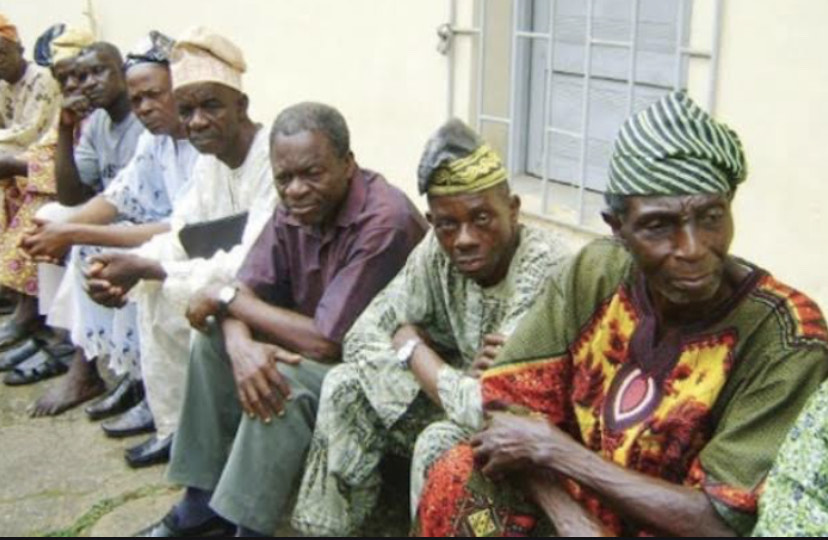- Senior citizens bemoan neglect, abandonment
From Adanna Nnamani, Abuja
In a nation marked by vibrant traditions and a rich cultural heritage, a troubling reality remains often overlooked and that is the plight of Nigeria’s senior citizens, who face the harsh reality of neglect, and abandonment by the very society they helped build.
The sun casts long shadows over the aging faces of those who once stood tall as pillars in their communities. Now, many find themselves cast aside, their wisdom and experiences fading away, while their once-laud, vibrant voices that guided younger generations now echo in the quiet corridors of nursing homes, which are often devoid of visitors or companionship.
For these elders, the golden years have lost their glow. They struggle to make ends meet on meager pensions, grapple with health issues without adequate care, and face isolation as families scatter in pursuit of livelihood.
Laws protecting older persons
In Nigeria, some laws and policies such as the National Policy on Ageing provides a framework for addressing the welfare of older persons.
Additionally, the National Senior Citizens Center Act was established to cater to the needs of senior citizens in Nigeria. These laws aim to promote the well-being, rights, and social inclusion of older persons in the country.
While these laws and policies are in place to protect older persons, their implementation and effectiveness measures are often low. Challenges such as inadequate healthcare, social support, and financial security still exist for many older individuals in the country.
The absence of social protection floors, including a regular distribution of pensions, contribute to the difficulty that older persons face in accessing social services, including appropriate healthcare, various care options, and adequate housing.
These elderly people, who make up the vulnerable population and should be given priority, are sometimes overlooked when government initiatives are launched to enhance the welfare of citizens.
Pensioners wail
Sadly, even those who devoted their youth to serving the nation struggle with accessing their entitlements due to bureaucratic hurdles or inefficiencies in the pension system.
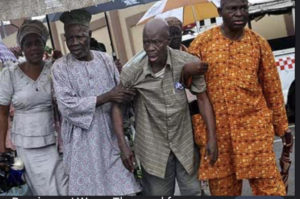
Many Nigerian pensioners face various challenges, including delays in pension payments, inadequate pension amounts, and issues with pension administration.
Additionally, inflation and economic instability has eroded the purchasing power of pension funds, impacting the quality of life for retirees.
Recently, retirees, on the platform of the Nigeria Union of Pensioners (NUP), vowed to take to the streets and protest unclad, if they are not included in the newly constituted Minimum Wage Tripartite committee.
The Union’s President, Godwin Abumisi, decried the appalling living conditions of many older persons in the country due to negligence, saying that the union had recently lost about 1,500 of its members to hardship and high cost of living.
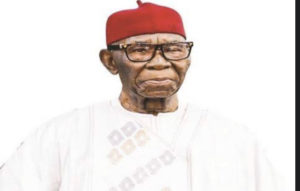
Abumisi disclosed that in many states such as Enugu, Yobe, Ondo and Kogi, pensioners still earned as low as N4,00 to N3,000 as monthly pension.
According to Abumisi, “ We have lost about 1,500 members. Just about last week, we traveled to Enugu to bury one of our staff who died. Why did he die? The doctors gave their diagnosis, but we know that he perished out of hunger.
“It is not in our powers to distribute food to pensioners of Nigeria. We do not have the resources. In Nigeria, the government does not think about the poor people. They only think about themselves. Otherwise, how can a pensioner in Enugu, receive as low as N420 monthly.
“I want to say it clearly and I want you to write it, I am going to lead Nigerian pensioners naked. I mean naked. When we are going to protest, we are going to go naked on the streets. Write down this so that the world will see it, Nigerian pensioners are going to demonstrate naked. If they like, let them arrest us or ask us if we are mad. We have reached a situation where we can now say, “we are mad.”
Speaking further, he said: “It may sound incredible and absurd, but it is the naked fact that many of our members across the states of the Federation are still earning as low as N500, N1,000 as monthly pensions, particularly, in the South-East states of Nigeria. Others are Borno State N4000, Gombe N8,000, Jigawa N12,000, Katsina N7,000, Kogi N5000, Kwara N3000, Niger N4,000, Taraba N5,000, Yobe N4,500, Zamfara N3,000, Nasarawa N4,000, Osun N10,000, Ondo N3,000, Oyo N5,400, Enugu N450, Adamawa N2000, Kano N5,000.
The pensioners boss said that the discrepancies in pension earnings are compounded by lack of harmonization of payments which the government has continued to pay lip service to, as well as refusal to implement previously reviewed minimum pension wages.
“It is important to highlight here that the above pension rates are as low as shown above due to non-harmonization of pensions which the Union has always made a case for, as well as the non-implementation and payment of the previously reviewed N18,000 minimum wage in 2010 and the N30,000 minimum wage in 2019 by many states of the federation. Sadly, the non-implementation of these salary reviews in the states has affected the corresponding increases in pensions in the various states under reference.“ he stated.
Another pensioner, Mr Adeleke Adeniyi, who also decried the precarious conditions of older people living in the nation, said the agencies of government responsible to cater for them are not making any significant impact.
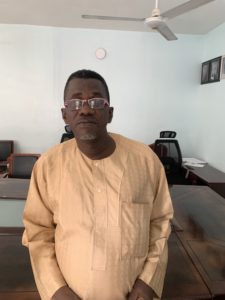
Adeniyi said he has a monthly bill of about N70,000 to settle, yet his pension cannot even cover half of it. He also complained about pensioners constantly being shortchanged of their benefits.
He noted that retirees in states are worse off as many state governors do not care about reviewing minimum wages despite collecting humongous amounts as federal allocations.
According to him, “in the states, our people are earning too low. You can imagine a situation where pensioners are paid N500 monthly and so many states are in that category.
“During the Buhari regime, states were getting between N400 billion to N700 billion. They were saying that the money was too small but as at now, in this current regime, the least money being shared to the federation account is nothing less than N1.2 trillion. The States are taking away a lot of money, yet they are impoverishing the pensioners in the state. My mother is a pensioner, my father died a pensioner without collecting the majority of his benefits at the age of 96, three years ago.
“I am also a pensioner for almost 16 years and one of the national executives of NUP. I worked for over 16 years but if I tell you what I am earning, you would be shocked. The worst thing is that those of us in the GPS, under the federal system, that are earning from the pensions transition directorate PTAD, in October last year, they said they did recomputation and started cutting pensions which is contrary to the dictate of the Constitution of the federal republic of Nigeria. I have, under me, as the National Secretary for the Nigeria Postal Services, Pensioners, people that they cut 35,000, 20,000 and 15,009 from their pensions.
“As I am standing here, I have an issue health wise. In a month, I spend at least 70,000 naira on my health needs but my pension is not up to half of the money. Another issue, what about the harmonization of the peoples pensions? We are supposed to be harmonised. Our pension take homes are not harmonised, yet they are deducting it.
“These so-called organisations that are paying us are not working for the good of the pensioners. They are only working for the good of themselves and they are giving the federal government a bad name.
“For those who are currently working, if not that we worked well when we were in service, what would they be sitting upon today? We are heroes too. We have what it takes to complain. We are not under dogs. We are not charlatans, but they treat us as if we are not an existing people.
Adeniyi warned that a nation that cannot take care of its younger and the old generations cannot survive.
“We are old people, yet, we are being trapped upon.” he lamented.
Government response
Meanwhile the Executive secretary of the Pension Transitional Arrangement Directorate Chioma Ejikeme in November said the directorate had begun moves to actualise the harmonisation of pensions of all federal retirees, particularly those under the Defined Benefit Scheme.
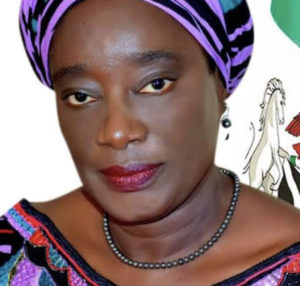
She also pledged to work for either the increment of their pensions as part of her commitment to ensuring the welfare of the pensioners.
The PTAD boss also disclosed that PTAD has given its payroll to the Ministry of Humanitarian Services and Poverty Alleviation for payment of palliatives to retirees under the fuel subsidy removal scheme of the federal government.
“I have put in place the process to meet with the minister of Humanitarian Services and Poverty Alleviation to know exactly how the pensioners will get their palliatives,” she said.
Also speaking DailySun in a phone interview, PTAD’s Head of Corporate Communications, Mr. Gbenga Ajayi, said the Directorate was in the process of rectifying some of the complaints of the pensioners.
“It is still a work in progress. We had a meeting with the unions where all those complaints were made and the directorate looked at the issues with the recomputation and we are addressing them.” He added.
Way forward:
The NUP President has proposed the N100,000 as the National Minimum Pension to the Tripartite Committee in line with the proposed N200,000 National Minimum Wage by the Nigeria Labour Congress (NLC).
According to Abumisi, anything short of that would incur the wrath of the pensioners who are hard-hit by the prevailing economic hardship, occasioned by the ever rising cost of living in a geometrical progression.
He also demanded that the Union be carried along during negotiations on the matters that bother their members.
In October, President Bola Tinubu signed the Protocol to the African Charter on Human and People’s Rights and on the Rights of Older Persons, Nigeria became the 13th member-state to affirm its commitments to strengthen the protection of the rights of older people through a binding regional legal instrument.
Responding to this, Country Director, Amnesty International, Nigeria, Isa Sanusi, said the ratification of this Protocol marked an important step towards protecting the human rights of older people in the nation.
Sanusi further called on Nigeria to fully support a United Nations (UN) convention on the rights of older persons, to further guarantee that these essential rights can become a reality for older people around the world.
“The Protocol requires that state parties protect the rights of older people, including by preventing discrimination against them, guaranteeing their access to healthcare, social protection, and support, and ensuring that they are among those prioritized in any humanitarian emergencies.
“Nigeria now has an opportunity to champion this cause further by engaging with other African states to encourage their ratification of the Protocol. By doing so, Nigeria can help in advancing the rights of older people across the continent, ensuring their dignity and human rights are fully respected, protected and fulfilled.” He said.
Some African countries such as South Africa, Mauritius, and Namibia have succeeded in improving the living conditions of their senior citizens by providing social protection for them.
These countries have implemented various programs such as non-contributory pension schemes, social assistance grants, and healthcare services for older individuals to ensure their well-being in old age.

